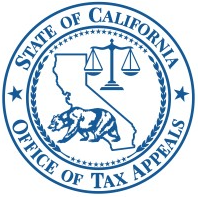 On April 3, 2020, New York State enacted the 2021 fiscal year budget (Budget). The Budget contains several tax measures including decoupling from taxpayer relief provisions of the Coronavirus Aid, Relief, and Economic Security Act (CARES Act). The CARES Act was signed into law on March 27, 2020 with the primary objective to provide economic relief and greater liquidity to American taxpayers facing hardship because of the COVID-19 crisis. Specifically, the Budget decouples from taxpayer favorable provisions in the CARES Act including the increase to the permitted business interest expense deduction and the beneficial NOL provisions. As a result, New York taxpayers will not receive the benefit of the CARES Act relief provisions for New York tax purposes. Continue Reading ›
On April 3, 2020, New York State enacted the 2021 fiscal year budget (Budget). The Budget contains several tax measures including decoupling from taxpayer relief provisions of the Coronavirus Aid, Relief, and Economic Security Act (CARES Act). The CARES Act was signed into law on March 27, 2020 with the primary objective to provide economic relief and greater liquidity to American taxpayers facing hardship because of the COVID-19 crisis. Specifically, the Budget decouples from taxpayer favorable provisions in the CARES Act including the increase to the permitted business interest expense deduction and the beneficial NOL provisions. As a result, New York taxpayers will not receive the benefit of the CARES Act relief provisions for New York tax purposes. Continue Reading ›

 SeeSALT Blog
SeeSALT Blog


 The California Office of Tax Appeals (OTA), in a
The California Office of Tax Appeals (OTA), in a 
 On April 3, 2020, New York State enacted the 2021 fiscal year budget (Budget). The Budget contains several tax measures including decoupling from taxpayer relief provisions of the Coronavirus Aid, Relief, and Economic Security Act (CARES Act). The CARES Act was signed into law on March 27, 2020 with the primary objective to provide economic relief and greater liquidity to American taxpayers facing hardship because of the COVID-19 crisis. Specifically, the Budget decouples from taxpayer favorable provisions in the CARES Act including the increase to the permitted business interest expense deduction and the beneficial NOL provisions. As a result, New York taxpayers will not receive the benefit of the CARES Act relief provisions for New York tax purposes.
On April 3, 2020, New York State enacted the 2021 fiscal year budget (Budget). The Budget contains several tax measures including decoupling from taxpayer relief provisions of the Coronavirus Aid, Relief, and Economic Security Act (CARES Act). The CARES Act was signed into law on March 27, 2020 with the primary objective to provide economic relief and greater liquidity to American taxpayers facing hardship because of the COVID-19 crisis. Specifically, the Budget decouples from taxpayer favorable provisions in the CARES Act including the increase to the permitted business interest expense deduction and the beneficial NOL provisions. As a result, New York taxpayers will not receive the benefit of the CARES Act relief provisions for New York tax purposes.  Nebraska’s tax department has issued guidance confirming its position that IRC 965 deemed repatriation income: 1) must be included in a taxpayer’s corporate income tax base (less the IRC 965(c) deduction); and 2) does not qualify for the state’s dividends received deduction. Nebraska Dep’t of Revenue, Gen. Info. Letter 24-19-1 (Sept. 13, 2019).
Nebraska’s tax department has issued guidance confirming its position that IRC 965 deemed repatriation income: 1) must be included in a taxpayer’s corporate income tax base (less the IRC 965(c) deduction); and 2) does not qualify for the state’s dividends received deduction. Nebraska Dep’t of Revenue, Gen. Info. Letter 24-19-1 (Sept. 13, 2019).